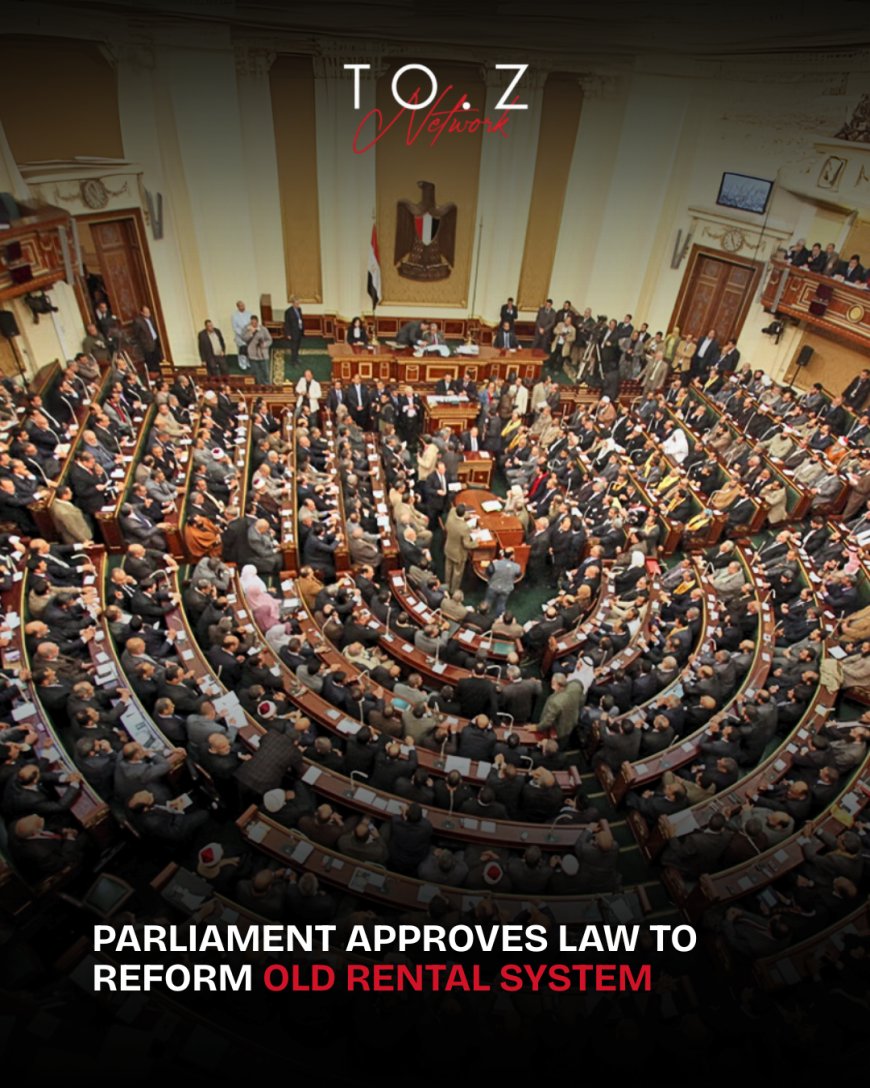Egyptian Parliament Approves Final Version of Controversial Old Rent Law
Egypt’s Parliament has officially passed the Old Rent Law, aiming to gradually end decades-old fixed rent agreements for residential and non-residential units. The new law introduces contract termination timelines, sparking debate over constitutional rights, tenant protections, and economic fairness. The government defends the reform as a step toward restoring balance in Egypt’s rental market.

Historic Shift in Rental Legislation
On Tuesday, the Egyptian Parliament officially passed the final version of the much-debated Old Rent Law, marking a major shift in the legal framework governing tenant-landlord relationships. The new legislation aims to restructure decades-old rent agreements that have long favored tenants with extremely low rental rates, creating tension and imbalance in the real estate market.
Aims to Restore Fairness and Economic Balance
The approved draft law, submitted by the government, seeks to establish a fair and sustainable balance between tenants and landlords. According to the Middle East News Agency (MENA), the law addresses long-standing distortions created by exceptional laws dating back to 1977 and 1981, which led to stagnant rental values and decreased property rights for landlords amidst rising living costs and changing economic conditions.
Key Provisions of the Law
The first article of the law, approved without any changes, states that the new rules apply to:
-
Residential units leased under old rent laws
-
Non-residential units leased by individuals (not businesses)
This legislation will regulate contracts governed by Law No. 49 of 1977 and Law No. 136 of 1981.
Controversy Over Article Two
One of the most debated aspects of the law is Article Two, which outlines contract termination timelines:
-
Residential leases will expire seven years after the law comes into effect.
-
Non-residential leases will expire after five years, unless otherwise agreed.
Several MPs opposed this clause, arguing it violates constitutional rights. MP Attef Al-Maghawry called for its removal, citing a 2024 ruling from Egypt's Supreme Constitutional Court that supports gradual rent increases rather than contract termination. Others, like MP Sanaa El-Saeed, warned of public backlash, especially given the law’s timing near the politically symbolic June 30 anniversary.
Government Defends Legal Changes
In response, Legal and Parliamentary Affairs Minister Mahmoud Fawzy reaffirmed the government's position, noting that the Constitutional Court had issued 26 rulings declaring provisions of the old rent laws unconstitutional. He emphasized the need to gradually liberalize rental agreements and return to the principles of Egypt’s Civil Code after a suitable transition period.
Fawzy also reassured that the government is committed to providing safe alternatives for vulnerable tenants during the transition.
One of Egypt’s Most Controversial Laws
The Old Rent Law is one of Egypt’s most socially sensitive legal reforms, affecting millions of tenants and property owners. While landlords argue for the need to update unfair contracts, many tenants fear displacement and economic hardship. The government maintains that the law is essential for correcting a historical legal imbalance and promoting social justice in housing.









